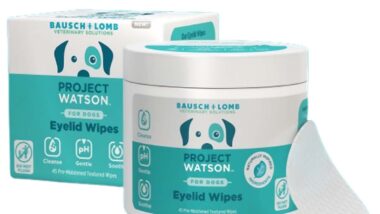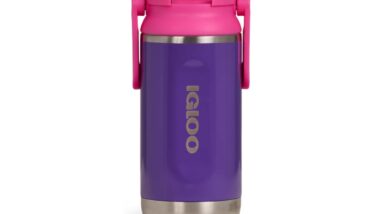Top Class Actions’s website and social media posts use affiliate links. If you make a purchase using such links, we may receive a commission, but it will not result in any additional charges to you. Please review our Affiliate Link Disclosure for more information.
No consumer wants to receive text messages from clothing stores without their consent. In response to this problem and other unwanted spam text messages, lawmakers have begun to consider and enact laws about what companies must do before sending a bulk text message or making a phone call to a possible customer.
Consumers also have legal remedies they can take against a company that violates the Telephone Consumer Protection Act. For those consumers who have received text messages from clothing stores, this raises the question of whether or not promotional or coupon texts violate the terms of federal laws and allow consumers to file suit. If you never signed up to get these texts, the store could be breaking the law.
What is the TCPA?
The Telephone Consumer Protection Act (TCPA) is a federal law passed in 1991 as a way to combat the growing number of telemarketing calls made to consumers’ phones. The rules, which have since been amended to stay relevant with technology advancements, are enforced by the Federal Communications Commission (FCC).
A variety of protections are offered under the TPCA, including rules about when a telemarketer can call or text and under which circumstances these communications can be initiated.
Under 2012 TCPA rule changes, a business is required to get prior express written consent before placing a robocall to consumers. This includes all texts and calls which were placed using an automatic dialing machine. These TCPA enhancements closed a loophole which allowed companies to justify robocalls and spam texts using an “established business relationship.”
In addition to closing the loophole, the rule changes require a business to include an interactive “opt out” mechanism during robocalls. With this requirement, consumers have the ability to immediately tell telemarketers that they don’t want to receive any further calls.
Although these regulations seek to protect consumers, some businesses may not follow the guidelines set by federal authorities. This could result in unsolicited text messages from clothing stores and other businesses.
Do Text Messages from Clothing Stores Violate the TCPA?
The first thing a customer might do on getting one of these texts is to reply “STOP” to try to end the company’s communication with them. But if the behavior has been going on for some time or if the request to stop communicating has not been honored, a consumer can go one step further.
Per the TCPA, a consumer is eligible to seek compensation for text message marketing that violates the law. Most consumers choose to do this in the form of a class action lawsuit, in which phone owners who have been targeted by the same company bring all of their claims together under one lawsuit. Such a suit can demand that the company stop the marketing actions and also allow those plaintiffs to seek recovery for the individual text messages already sent.
Suits have been settled by Abercrombie and Fitch and ExactTarget/SimplyFashion for such violations.
Why Is It So Hard to Avoid Spam Texts from Retailers?
Customers can take a range of actions to avoid getting unwanted texts or robocalls. However, companies may still find ways around these to contact individuals. Some companies may also have a blatant disregard for the rules of the TCPA, and may contact individuals relentlessly.
One of the most common ways to avoid robocalls and spam texts is to block a number from which you have received these messages in the past. Once blocked, you will no longer receive messages from that number. However, many companies may use multiple numbers to send spam texts and place telemarketing calls. This can confuse consumers into picking up the phone for a number they don’t recognize because they may think it is an important call.
Consumers can also register their phone number on the National Do Not Call Registry. The National Do Not Call Registry was established by the FCC in partnership with the Federal Trade Commission (FTC) in 2003. Businesses are prohibited from calling numbers on this registry. Yet again, some companies may disregard this rule and call numbers on the registry nonetheless.

Many companies have similar do not call lists which consumers can request to be added to. Businesses must adhere to these requests as per TCPA guidelines.
Individuals who are trying to avoid telemarketers may also make the choice to simply not pick up a call from an unknown number. If you do pick up a call from an unknown number which turns out to be a telemarketer, you are effectively showing the telemarketer that the number is “live” and should be called again, even if you hang up right away or tell them that you do not want to be called again.
This can also be the case with text messages — responding to a telemarketing text tells the telemarketer that there is someone associated with the number, explains RoboKiller.com.
Although these measures are good when dealing with genuine telemarketers, consumers may find themselves frustrated by spam callers or stubborn companies.
How Much Could I Receive in a Lawsuit?
If you have received text messages from clothing stores or unwanted texts from restaurants that you never consented to receive, you could participate in a class action lawsuit. The first step would be to speak with an attorney who is familiar with TCPA claims.
Consumers are increasingly turning to class actions as a way to hold clothing stores and other establishments accountable for spam text messages. You could be eligible to receive up to $1,500 for each unwanted text message you get. If you think you might pursue this route, make sure you keep a copy of the texts received as this is an important part of your legal argument. Do not delete the messages from your phone until you’ve spoken with an attorney about the case.
Clothing Store TCPA Settlements
Consumers who say they received unwanted text messages from clothing stores have been able to secure lucrative settlements after lodging class action lawsuits over alleged TCPA violations.
Recently, online retailer Nasty Gal agreed to pay those who received spam text from the company up to $35 in cash or a $45 voucher to end a class action lawsuit alleging TCPA violations. Additionally, the company agreed to pay the lead plaintiffs in the lawsuit $5,000 and paid nearly $1 million in legal fees.
Rack Room Shoes reportedly agreed to pay almost $26 million in a TCPA class action settlement. Consumers claimed that the shoe retailer had sent out unwanted text messages to consumers without prior consent. The class action lawsuit also alleged that the retailer had used an automatic text message platform to send the messages. Under the terms of the settlement, approximately 5.2 million consumers were entitled to claim a $10 voucher from Rack Room. In addition, the retailer reportedly agreed to change its marketing policies and procedures.
The Fashion Law reported that Hot Topic was subject to a TCPA class action lawsuit. Reportedly, the retailer, who is regaining popularity among youth, agreed to pay $3 million in a settlement in April 2019. The settlement ended allegations that Hot Topic contacted plaintiffs and other consumers via text, despite their indicating to the company that preferred to receive marketing in other ways.
What Makes a Text Message Illegal?
Per regulations from the FCC and under the TCPA, it is illegal for a company to send text messages distributed through an autodialer system, or robocalls. The exception to this is if the text was sent in relation to an emergency situation or if the consumer consented to receive those messages in the first place.
Companies have to obtain signed and written consent before text messages of any other type can be sent to a consumer. If a company, such as a clothing store, ignores these laws and continues to reach out to phone owners without consent, this can form the basis of a lawsuit; the TCPA states that a consumer can fight for between $500 and $1,500 for every violation.
Unfortunately, retail marketers have been fighting back against claims of misusing text messaging programs, according to Retail Drive. This makes it all the more important to have the right lawyer to help you with your legal claim. Top Class Actions can help you find an attorney to guide the process.
Join a Free Text Message Coupon Class Action Lawsuit Investigation
If you have received coupons or sales advertisements in a text message from a restaurant or clothing retailer and your phone number is registered with the National Do Not Call registry, you may be entitled to compensation.
This article is not legal advice. It is presented
for informational purposes only.
ATTORNEY ADVERTISING
Top Class Actions is a Proud Member of the American Bar Association
LEGAL INFORMATION IS NOT LEGAL ADVICE
Top Class Actions Legal Statement
©2008 – 2024 Top Class Actions® LLC
Various Trademarks held by their respective owners
This website is not intended for viewing or usage by European Union citizens.
















21 thoughts onDoes the Do Not Call List Include Text Messages from Clothing Stores?
I have a question texts and the National DNC Registry.
Can an individual or seller text a consumer who has placed their name on the DNC list if it is not Automated or Mass generated?
Ive read numerous times that Mass generated texts and/or Automated Texts are illegal but is there a loophole if one texts each consumer individually?